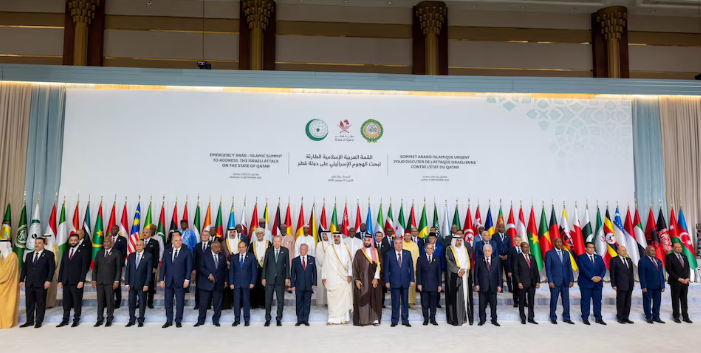Tensions in the Middle East escalated again this week as Israeli Prime Minister Benjamin Netanyahu declared he would not rule out further strikes on Hamas leaders “wherever they are.” His warning came just days after Israel carried out a September 9 strike in Doha, Qatar, targeting senior Hamas operatives — a move that rattled Arab and Islamic leaders but underscored Israel’s refusal to allow safe havens for terrorists.
While much of the Arab world rushed to condemn Israel and rally behind Qatar, the United States signaled strong backing for Israel’s stance. Secretary of State Marco Rubio stood alongside Netanyahu in Jerusalem and made it clear: peace will only come if Hamas releases all hostages and surrenders unconditionally. “As much as we may wish that there be a peaceful, diplomatic way to end it, and we’ll continue to explore and be dedicated to it, we also have to be prepared for the possibility that’s not going to happen,” Rubio said. Calling Hamas “savage terrorists,” he added, “Hamas needs to cease to exist as an armed element that can threaten the peace and security of the region.”
The reality is simple: Hamas ignited this war with its brutal October 7, 2023 massacre — murdering 1,200 Israelis and taking more than 250 hostages. Israel’s actions since then have been a direct response to eliminate the terror group’s infrastructure. That includes strikes like the one in Doha, which killed five Hamas operatives, among them the son of the group’s exiled Gaza chief. Israel made clear the intent was to cripple Hamas leadership, not to escalate with Qatar, a nation that still hosts U.S. military forces while at the same time providing cover for Hamas leaders.
Qatar’s leadership denounced the strike as “cowardly and treacherous,” but it is worth noting the country has long been accused of playing a double game — posturing as a U.S. ally while offering Hamas political legitimacy and refuge. The calls from the Arab summit to “review ties” with Israel reflect the same familiar playbook: blame Israel while ignoring the bloodshed Hamas unleashed.
President Donald Trump struck a measured note, reminding Israel to be “very, very careful,” while also emphasizing that “they have to do something about Hamas.” His remarks highlight a truth American conservatives understand well: Israel must defend its people first, even as it navigates international pressure.
Meanwhile, on the ground in Gaza, the Israeli Defense Forces continue to dismantle Hamas strongholds. Recent strikes destroyed a 16-story building used to conceal “terrorist infrastructure” and eliminated multiple Hamas positions in Gaza City. Despite claims from Palestinian authorities — who tally more than 64,000 casualties — Israel maintains it is targeting militants while warning civilians to evacuate areas used as human shields by Hamas.
The diplomatic wrangling will continue, with France and Britain reportedly preparing to recognize a Palestinian state at the U.N. General Assembly later this month. Netanyahu hinted that unilateral recognition of a Palestinian state could invite decisive Israeli action, including extending sovereignty over parts of the West Bank. “A future step is a future step. We don’t need to expose it ahead of time,” Netanyahu said, underscoring that Israel will not sit idle while its security is undermined by international grandstanding.
The core issue remains: Israel’s survival and the security of its people cannot be left to empty diplomatic gestures or the good faith of terror groups. As Rubio’s visit makes clear, America’s true interest lies in standing firmly with Israel, not appeasing nations that shield Hamas. The outcome of this conflict will set the tone for whether the free world tolerates terrorism cloaked in political theater — or whether we finally insist that groups like Hamas be eliminated once and for all.




















